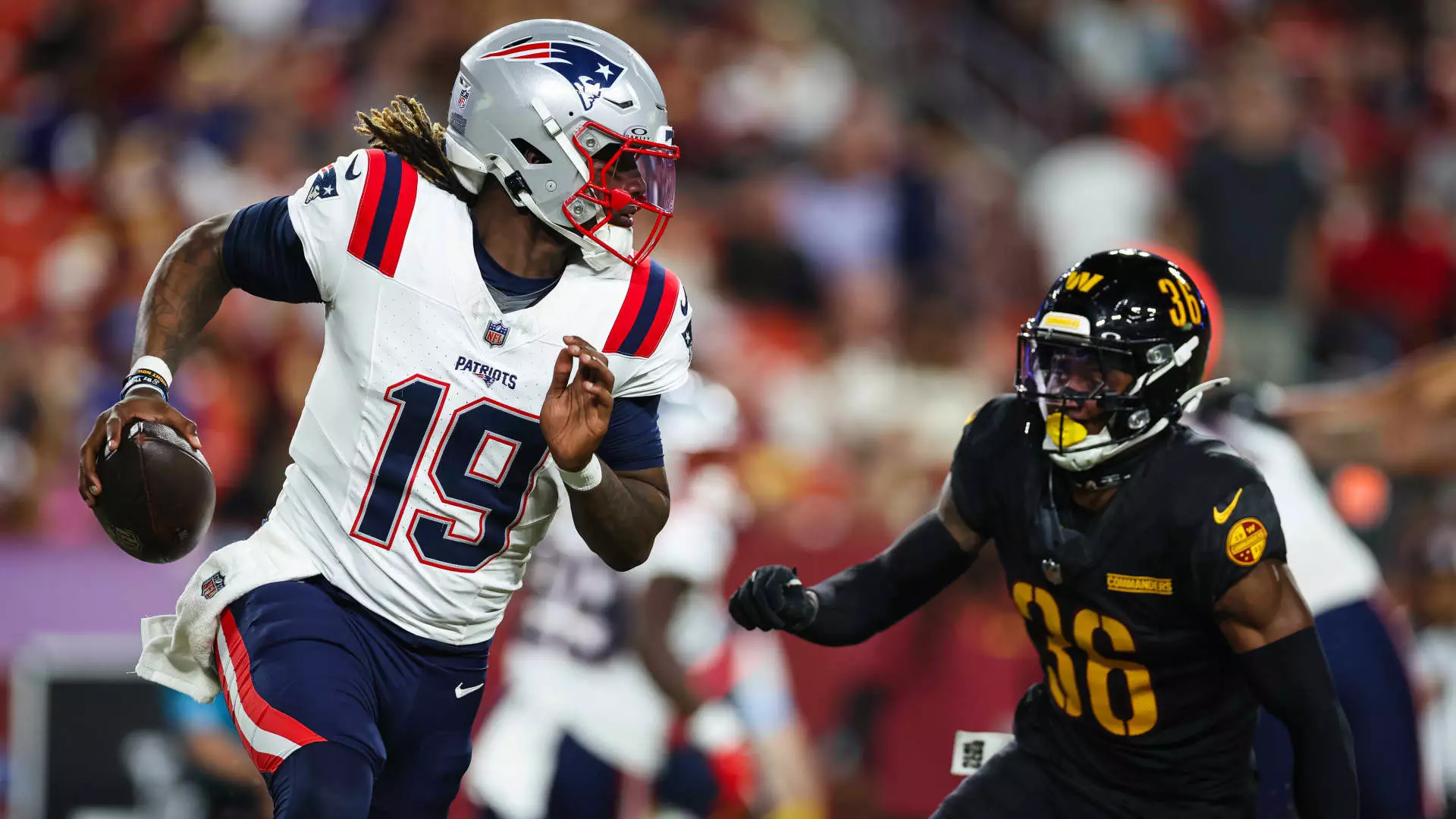The Rise of NFL Betting: Strategies, Innovations, and Market Dynamics

As the National Football League (NFL) season kicks off, anticipation is not just palpable among fans but also among sports betting operators. Predictions suggest that American adults will wager an astounding $35 billion on NFL games this year, a staggering increase from the $26.7 billion wagered during the previous season. This surge represents over a 30% growth in engagement with sports betting, according to projections from the American Gaming Association (AGA). Additionally, the landscape of sports betting has expanded with three new states—Maine, North Carolina, and Vermont—welcoming licensed betting operators, and Hard Rock International’s recent reestablishment of its sportsbook in Florida following legal approval. With sports betting now active and legitimate in 38 states and Washington, D.C., the industry is experiencing rapid growth. However, this expansion is juxtaposed with a troubling performance of stock prices among prominent gambling companies.
Despite the projected growth of the sports betting market, shares of major gambling corporations such as DraftKings, Penn Entertainment, Caesars, MGM Resorts, and Entain are all down year-to-date. While Flutter, the parent company of FanDuel, has seen a 19% increase in its stock value after a successful listing on the New York Stock Exchange, most industry players face a challenging market environment. Churchill Downs is among the few companies experiencing a positive stock performance, alongside Rush Street Interactive, which has enjoyed impressive gains of 109% since the beginning of the year.
This disconnect between sports betting enthusiasm and stock market performance raises fundamental questions: Are investors undervaluing the long-term potential of these companies, or is there something more ominous in play, such as market saturation, regulatory hurdles, or competition from emerging players?
As sportsbooks gear up for the NFL season, they view this time as critical for customer acquisition. The NFL is undeniably the most popular league for sports betting in the United States, with sportsbooks tailoring their promotional strategies to attract attention. FanDuel stands out as a leader in this realm. They have partnered with YouTube to create a special “Sunday Ticket” offer that provides viewers with a three-week trial of out-of-market NFL games, provided they place a wager of just $5. This innovative strategy aims to enhance customer engagement by merging sports viewing with betting, potentially leading to increased wagering activities.
FanDuel has also refreshed its app design and added new betting options, particularly enhancing its Same Game Parlay feature. As more than 95% of sports wagers now occur online, the emphasis on speed and user experience has never been greater. Micro-betting has emerged as a significant trend, allowing gamblers to place bets on specific plays as matches unfold, fueling excitement and engagement in real-time.
Fanatics and the Power of Data
Newcomers to the sports betting scene, such as Fanatics, have generated significant buzz. Leveraging an extensive database of over 100 million sports fans, Fanatics Sportsbook has made inroads into the market, having launched in 22 states within just a year. The integration of PointsBet’s U.S. operations further strengthens Fanatics’ competitive edge. Fanatics also hosted a large-scale fan activation, Fanatics Fest NYC, to bolster community engagement, showcasing its commitment to intertwining customer experience with sports betting.
CEO Matt King highlighted the unique player rewards and innovative offerings his company is developing, especially during the “sports equinox,” a time when multiple sports overlap, maximizing engagement opportunities. This forward-thinking approach emphasizes the importance of rewards and promotional incentives in retaining customers.
Innovative Features and Market Expansion
Additionally, established players are not resting on their laurels. DraftKings has introduced a novel betting option with its “No Touchdown” prop bet. This creative offering allows gamblers to wager on the potential failure of top players to score touchdowns, broadening the betting landscape and appealing to various types of bettors.
Meanwhile, Penn Entertainment is eager to capitalize on its substantial investment in rebranding its sportsbook as ESPN Bet. Having seen an 80% increase in its customer database to over 31 million, CEO Jay Snowden expressed optimism about utilizing ESPN’s media reach to enhance user engagement and loyalty.
BetMGM has also made strides with innovations like the launch of a single wallet for mobile play, allowing seamless transitions for bettors moving between jurisdictions. The financial imperative for smoother transactions reflects the growing consumer demand for convenience in the betting experience.
As this NFL season unfolds, the landscape of sports betting is rapidly evolving. While excitement builds among fans and anticipated wagers push the boundaries of prior seasons, the market dynamics and stock performance metrics invite scrutiny. How sportsbooks leverage innovative features and capitalize on technological advancements may determine their success in garnering and retaining new customers. As Federal and state regulations continue to shape the industry, the balance between risk and reward remains at the forefront of this burgeoning market. The excitement of the game is now paralleled by the electrifying possibilities of sports betting, making it an indelible part of the NFL experience.





